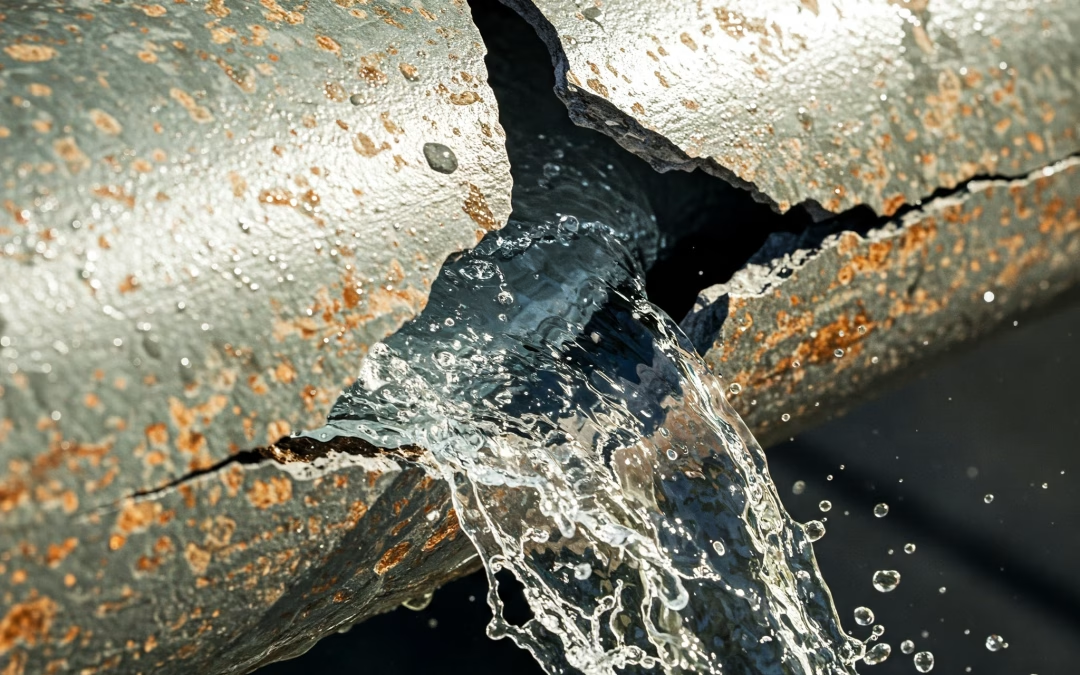Why do pipes burst?
Have you ever experienced the sudden shock of a burst pipe in your Durban home? The unexpected gush of water, the chaos, and the potential for significant damage can be truly distressing. While aging infrastructure is a culprit , a common and often overlooked culprit is the relentless growth of tree roots.
Invasive Power of Tree Roots
Tree roots are incredibly powerful. They relentlessly seek out moisture and nutrients, extending deep into the ground and exerting immense pressure on surrounding structures. When these structures include underground pipes, the consequences can be severe.
- Cracks and Fractures: As roots grow, they exert increasing pressure on the pipe’s surface. This constant pressure can cause cracks and fractures in the pipe’s structure, weakening it over time.
- Blockages: Roots can penetrate pipe joints and even grow inside the pipe itself, creating blockages that restrict water flow. These blockages can lead to increased pressure within the pipe, further increasing the risk of a burst.
- Soil Erosion: Tree roots can destabilize the soil surrounding the pipes. This erosion can cause the pipes to shift or settle, creating stress points and increasing the likelihood of breaks.
Common Culprits in Durban
Durban’s lush, subtropical climate provides ideal conditions for vigorous tree growth. Some of the most common culprits include:
- Ficus Trees: Known for their expansive root systems, Ficus trees, including the iconic Fig tree, pose a significant threat to underground infrastructure.
- Jacaranda Trees: While beautiful during their blooming season, Jacaranda trees also have extensive root systems that can cause significant damage to pipes.
- Other Invasive Species: Numerous invasive tree species, such as the Gum tree, thrive in Durban’s climate and can wreak havoc on underground pipes.
Preventive Measures
While you can’t prevent trees from growing, you can take steps to minimize the risk of pipe damage:
- Proper Tree Selection: When planting new trees, choose species with less aggressive root systems. Consult with an arborist for guidance on suitable tree choices for your specific property.
- Root Barriers: Consider installing root barriers around newly planted trees or existing trees near your property lines. These barriers can help to contain root growth and prevent them from reaching underground pipes.
- Regular Inspections: Schedule regular inspections of your plumbing system to identify potential problems early on.
- Professional Tree Care: Engage the services of a qualified arborist to assess the health of trees on your property and to prune them appropriately to minimize the risk of root damage.
Conclusion
By understanding the impact of tree roots on your plumbing system and taking proactive steps to address potential issues, you can minimize the risk of costly and disruptive pipe bursts in your Durban home. Remember, early detection and prompt action are key to preventing significant damage and ensuring the long-term health of your plumbing infrastructure.
Disclaimer:
This blog post is for informational purposes only and should not be considered professional advice. Always consult with qualified professionals 1 for any plumbing or tree care concerns.
Dealing with a burst pipe? Get fast, reliable help from our experienced and registered plumbers in Durban. We’re here to fix the problem quickly and professionally.
frequently asked questions
What exactly causes tree roots in sewer pipes?
Tree roots naturally seek out water and nutrients. Sewer pipes, especially those with small cracks or leaks, provide an ideal environment. Roots can penetrate these openings and grow, eventually causing blockages.
How do I know if my pipes are blocked by roots?
Signs include slow-draining sinks and toilets, gurgling sounds, foul odors, and soggy patches in your yard. If you notice these issues, root intrusion might be the culprit.
How to prevent this?
Preventive measures include using root barriers when planting trees, choosing non-invasive tree species, and scheduling regular sewer line inspections.


Recent Comments